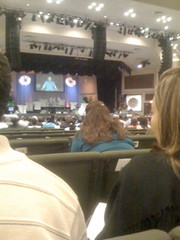 What is Invisible Children?
What is Invisible Children?
For those who don’t know, for many years these children were being abducted by Joseph Kony’s army the LRA and turned into child soldiers (and many of the girls were trafficked). To avoid being abducted, many of the children would commute out of their village and to a bigger town and sleep in hiding. The next morning they would return to do their schooling and chores and then commute back (There are some absolutely horrific and heartbreaking stories). Since the ceasefire in 2008, Cony’s army is believed to be in the Congo and night-commuting has stopped. This has become an important time for healthcare and education. You can learn more and watch short video clips at www.invisiblechildren.com and order the full length dvd’s, which of course helps raise funds. You can read more of the beginning of IC here.
How We Got Involved
For me, It started when my friends Todd Hiestand and Gary Alloway were planning to take their church, The Well, to a sleepover in center city Philadelphia to create awareness for the “Invisible Children” of Uganda. Like most people I know, there are so many causes and organizations that need help. How do you discern which caues/organizations to support and which ones not to? It’s an impossible question but I’m of the school of thought of being faithful with the opportunities that present themselves and for us, this came was one of them.
I was very moved by the first Invisible Children dvd called “The Rough Cut”. It’s disturbing alarming and even more depressing is knowing that Uganda is not the only place of such evil atrocities. A few years ago, we showed it to our Sr. High youth group. They too were moved. Immediately, I had facebook posts and emails about what we could do to help. It started by taking a collection and later buying a few dvd’s and a few shirts. Last year we saw another one called “Sunday”. It’s a story centered around a teen-age boy named Sunday that lost his family but now dreams of being a doctor. This past summer at YS’s DCLA, we saw their newest one called “Go” which features their new “Schools for Schools” campaign (American schools helping Ugandan ones). Afterwards we signed up to host a screening. One of the awesome “roadies” called us and the date was set for Wed. Oct 21st.
 Aside from raising financial support, creating awareness is an extremely important part of the cause. We are not a large church and not a large youth group but we decided that this was a cause that we wanted to share with our friends. In some ways, this became a way of discussing faith and religion with others. But instead of asking questions like, “Do you know where you will go after you die?”, a better question was “Would you like to come to a free documentary screening about the atrocities in Uganda? It’s really moving and we can help.”
Aside from raising financial support, creating awareness is an extremely important part of the cause. We are not a large church and not a large youth group but we decided that this was a cause that we wanted to share with our friends. In some ways, this became a way of discussing faith and religion with others. But instead of asking questions like, “Do you know where you will go after you die?”, a better question was “Would you like to come to a free documentary screening about the atrocities in Uganda? It’s really moving and we can help.”
Flyers were created, Facebook invites were sent, and quite seriously, most of our students felt this was among the easier things to invite people to. The weekend before our screening, we stood outside grocery stores, Starbucks, and went business to business asking if we could post our flyers. When the night finally came, we had almost 200 people. Even better was that crowd brought their wallets and bought shirts, dvd’s and signed up for the “Tri-campaign” ($3/week to IC).
We had a really solid response afterwards from students, parents, and people from our community we met at A&P, who saw our signs in deli’s, laundromats and Facebook. One mother called me the next day and said something to the effect of, “You are showing us that we need to rethink evangelism.” I think I’ll save that for another post but that was a moment that did my heart some good.
Invisible Children is a form of the Gospel. And screenings are an excellent opportunity of telling our communities that Christians care about the needs outside its walls. Further, the situation in Uganda is dire. I’d like to encourage you to look into this, especially my fellow youth pastors.
 How you can get involved:
How you can get involved:
- Go up on www.invisiblechildren.com and watch some of their shorter video clips.
- Order some DVD’s
- Read up on the history of the war in Uganda.
- Consider inviting a bunch of friends and host a screening with the hopes of creating awareness
- Not a youth pastor? Consider showing a documentary to a few friends or your church small group.
- Commit to giving through the “Tri” Campaign (3 bucks a week)
So what’s next for us? It looks like a benefit concert.
As always, holler if you have any questions. Would love to help in any way I can.
 Today me and our jr. high youth pastor went to see Rick Warren at the New York City Cultural Center in Brooklyn.
Today me and our jr. high youth pastor went to see Rick Warren at the New York City Cultural Center in Brooklyn.






Recent Comments